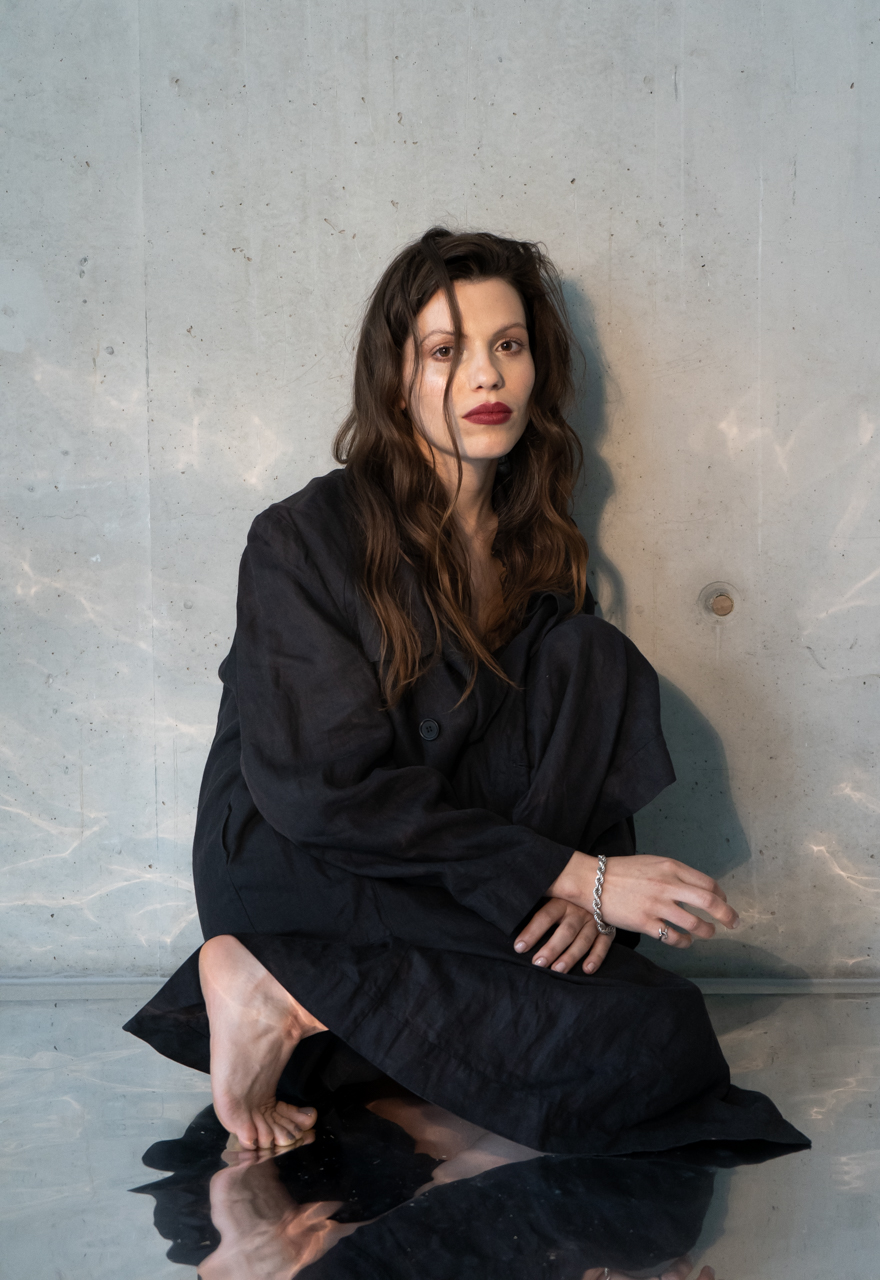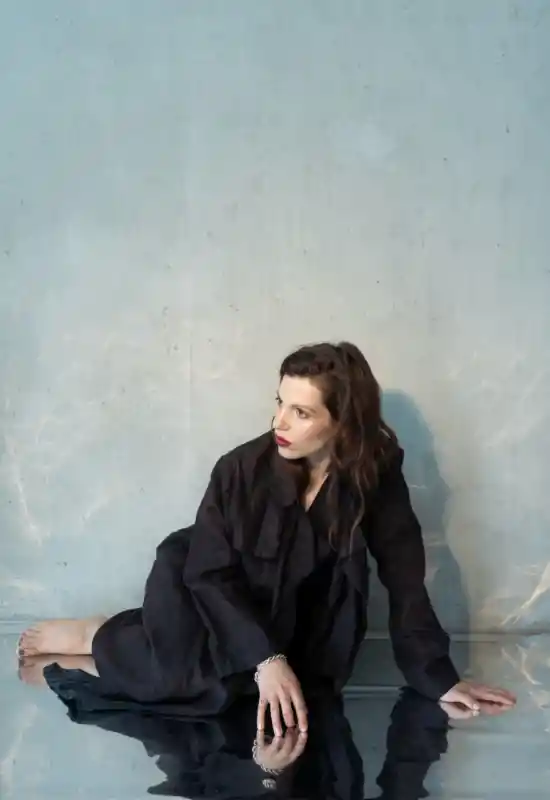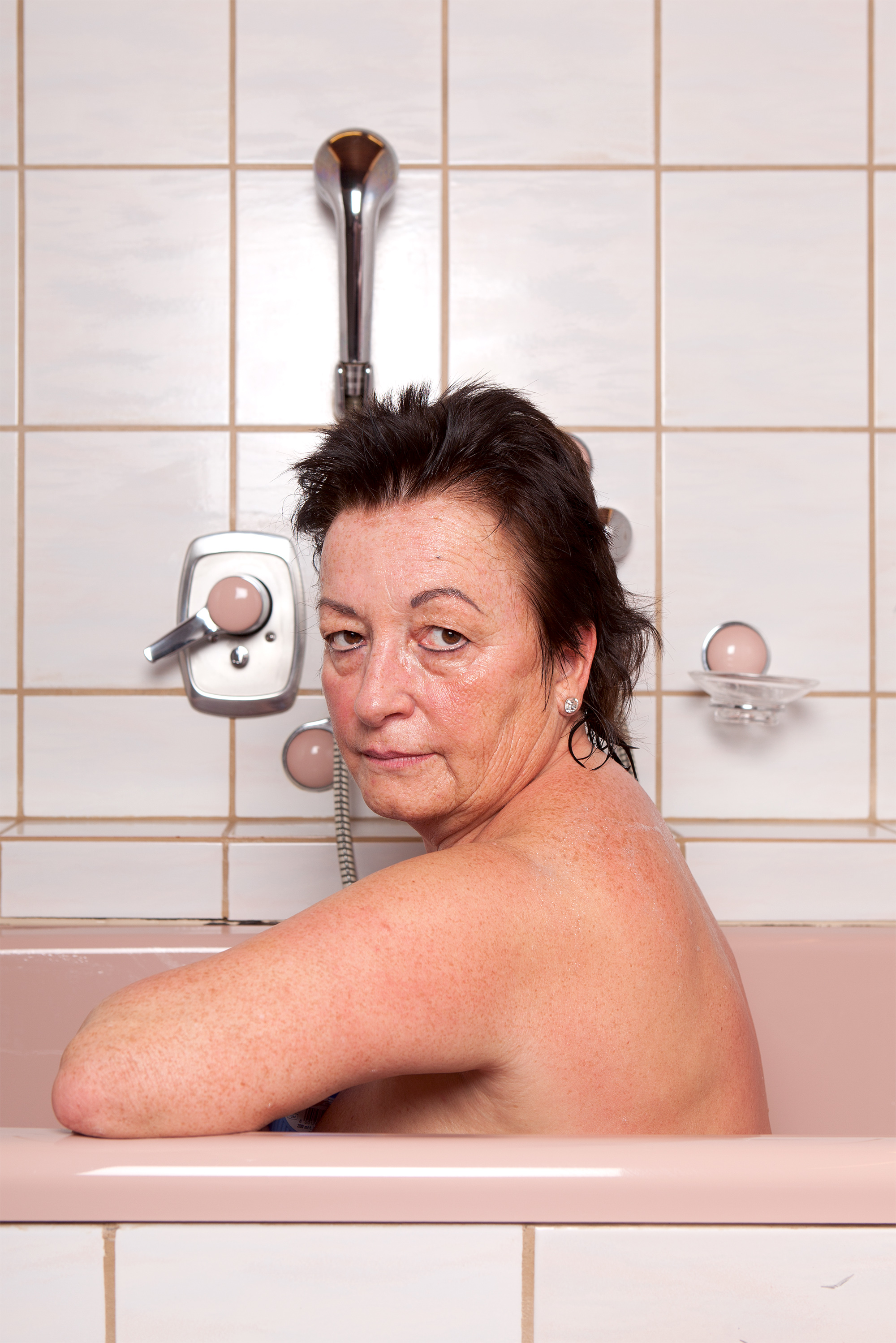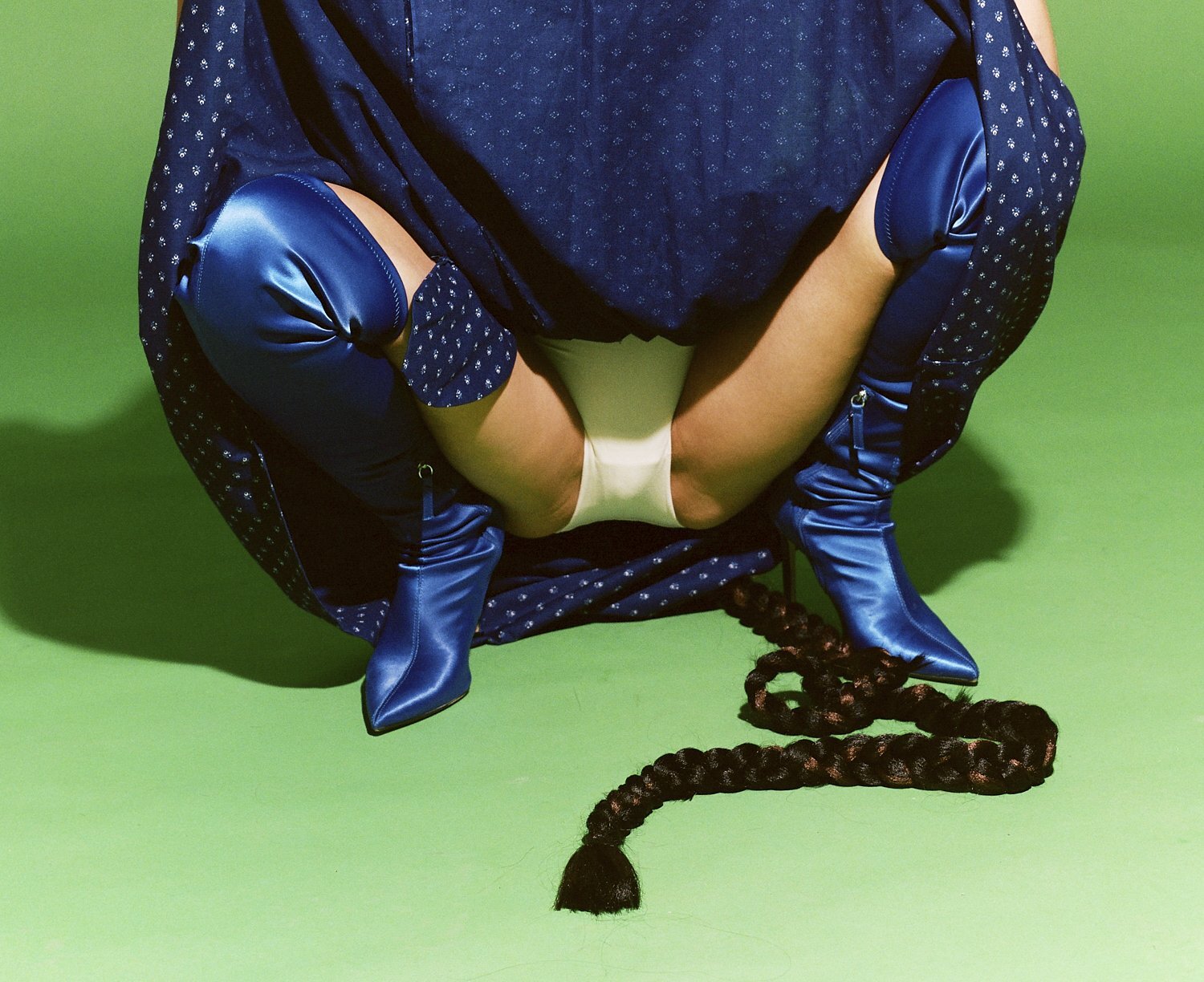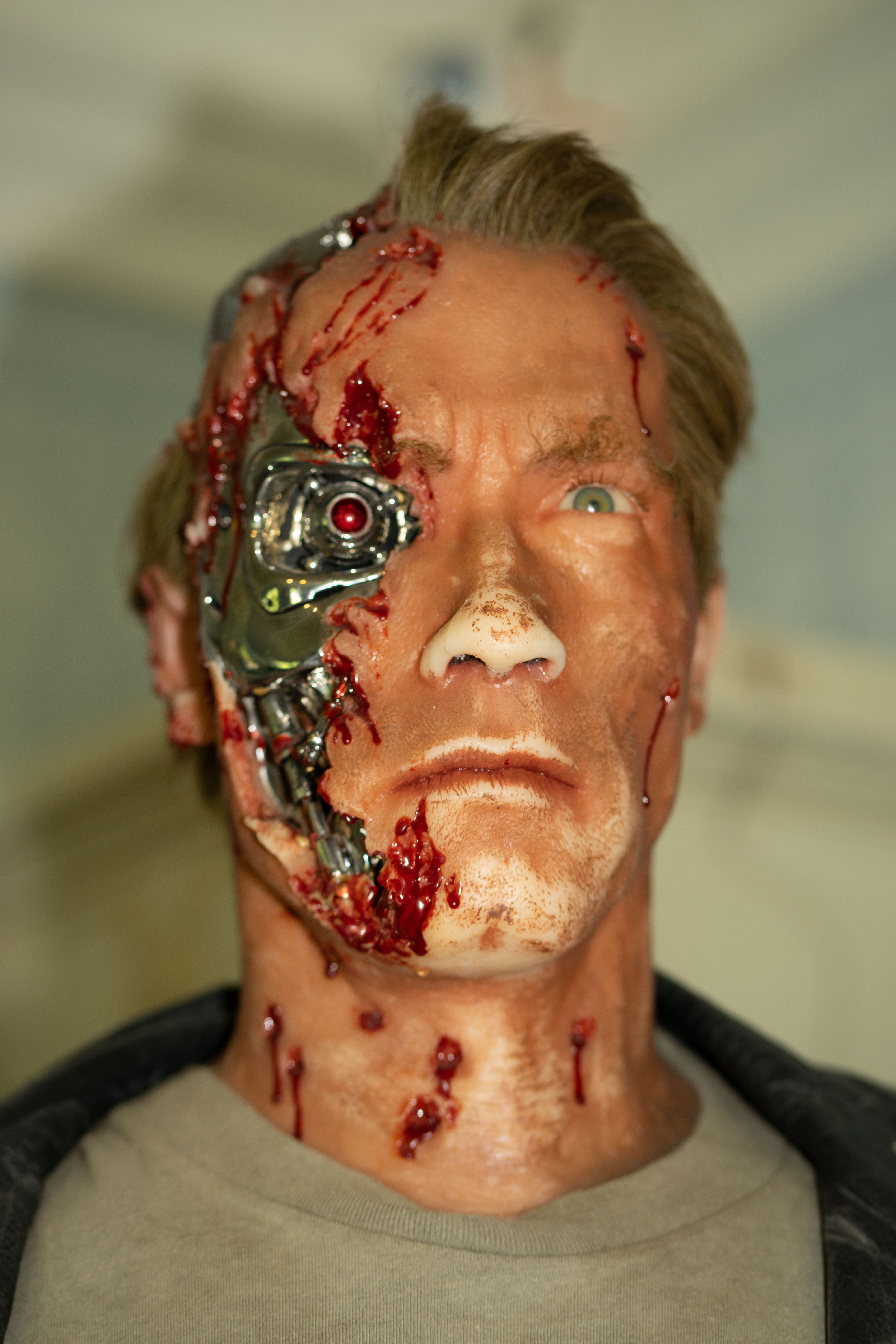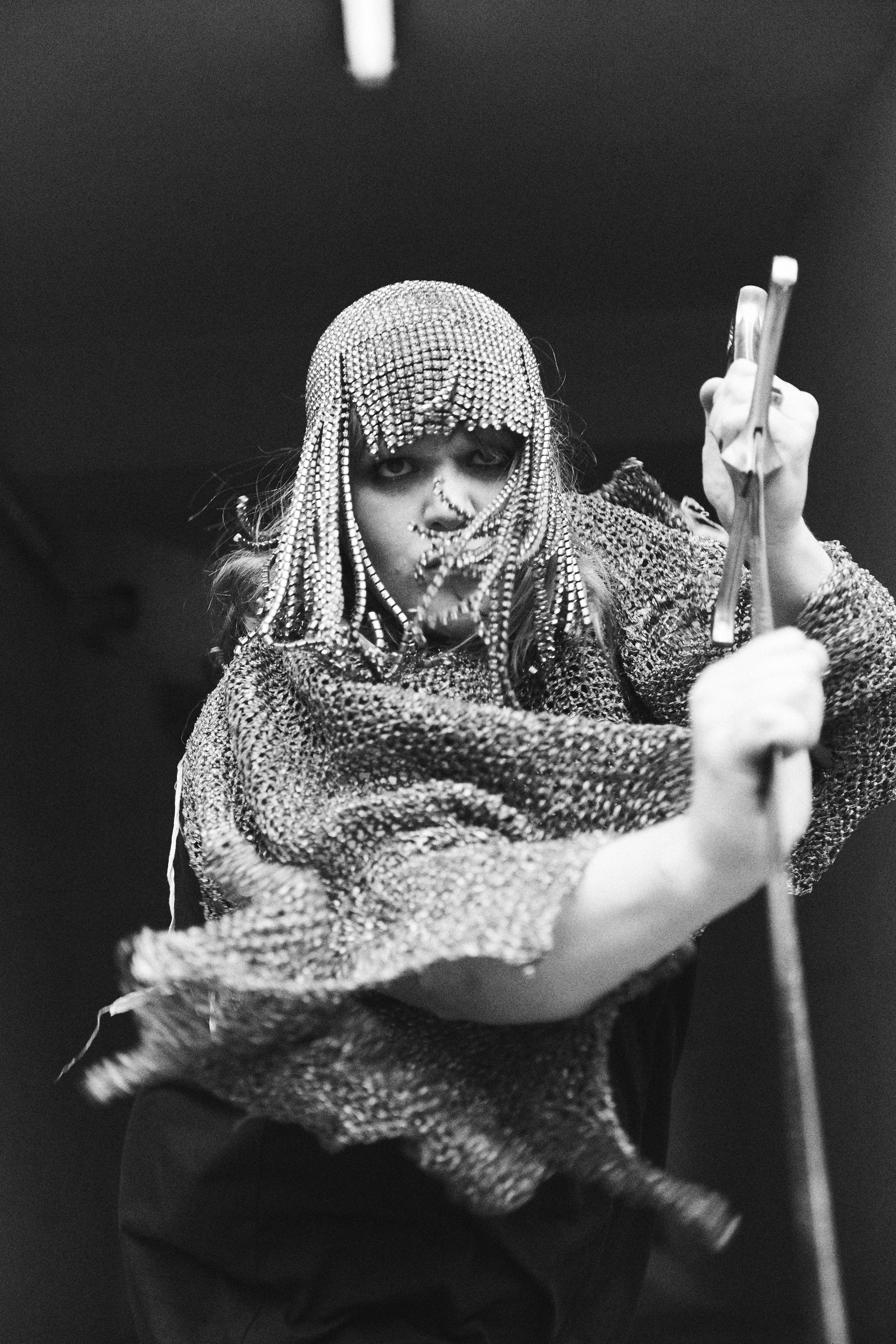This interview appeared in the print edition 5/2022 "The Province Issue". You can order the magazine in our SHOP.
Anja Plaschg, aka Soap&Skin, born in 1990 in southeastern Styria, grew up in tranquil Katzendorf. At the age of 16 she moved to Vienna to study painting with Daniel Richter at the Academy of Fine Arts. Two years later she dropped out and at the same time celebrated her first, much-acclaimed musical successes. In her music, Plaschg combines experimental electronic sounds with partly classical instrumentation, sometimes quiet, sometimes harrowing, but always carried by her unmistakable, unique voice. Especially on the first two albums, these musical elements condense into a melancholy, but beautiful, atmosphere. In 2013 her daughter Frida was born, who gets to sing the last verse on Heal on Anja's last album From Gas to Solid / you are my friend: "I have no fear. I have no fear." The work has something conciliatory, it sounds optimistic. And the chances of healing this world increase even more towards the end of the album: the last track is a cover version of Louis Armstrong's What A Wonderful World. In 2024, she not only inspires audiences with her music, but also as an actress. In the Austrian historical drama The Devil's Bath, she combines her two talents: she composes the soundtrack and plays the role of the deeply religious and highly sensitive Agnes. The 121-minute film was presented at the Berlinale 2024.
_________________________________________________________
SPIRACLE
When I was a child
I toyed with dirt and I fought
As a child
I killed the slugs, I bored with a bough
In their spiracle
When I was a child
Peers pushed me hard
In my head, in my neck, in my chest, in my waist, in my butt
I still beg
Please help me
When I was a child
I threw with dung as I fought
As a child
I killed all thugs and bored with a bough
In their spiracle
When I was a child
Foes pushed me hard
In my ___, in my neck, in my chest, in my waist, in my butt
I still beg
Please help me
When I was a child
I rend my tongue distraught
As a child
I killed my thoughts and bored with a bough
In my spiracle
When I was a child
Fears pushed me hard
In my head, in my neck, in my chest, in my waist
I never loved
I still beg
Please help me
I was a child, I was a child
I was a child, I was a child
I am a child
This is the "secret" last verse that Soap&Skin has exclusively sung live so far:
When I was a child
I bred a whore in my heart
a stillborn child
I've gasp for
the devil into my spiracle
I was a child, I was a child,
I was a child, I was a child,
I am a child.
